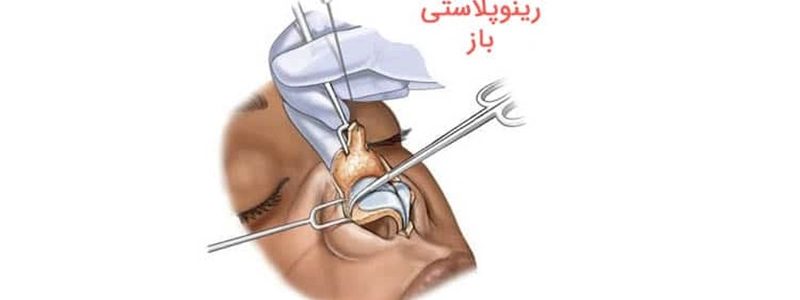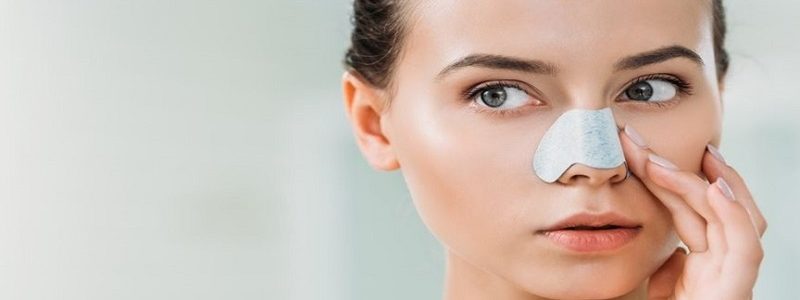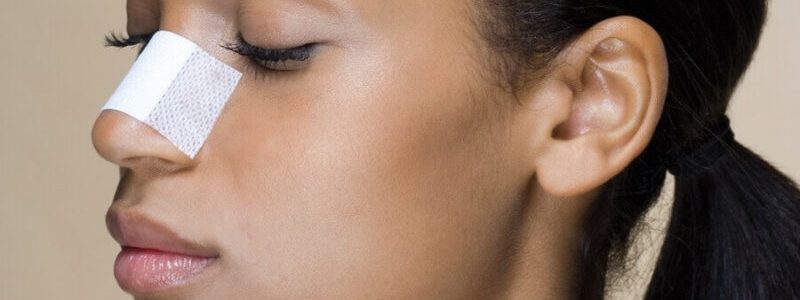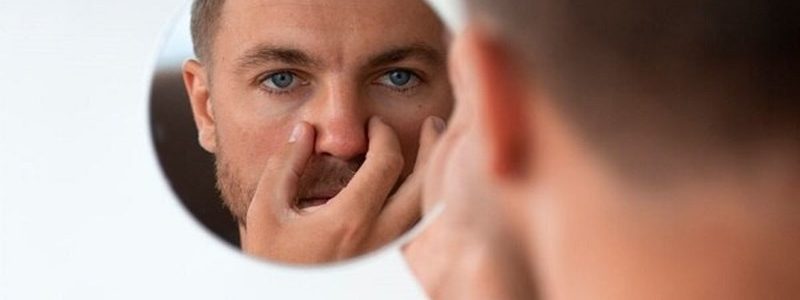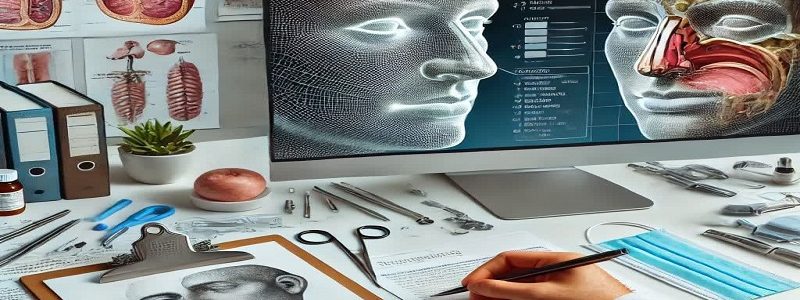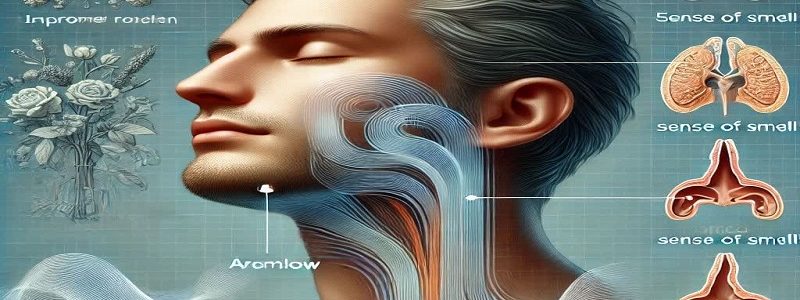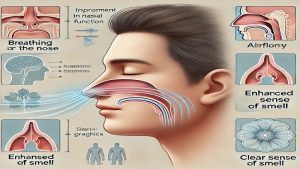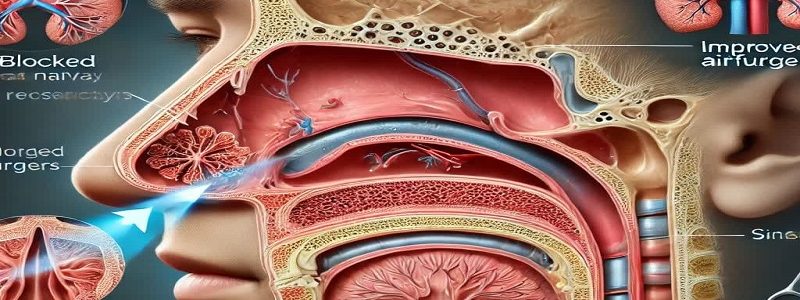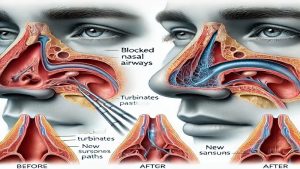Nose surgery: Open versus closed rhinoplasty
Rhinoplasty, commonly known as nasal surgery, is a surgery performed for nasal deformation. This is a very individual procedure and should be based on the patient's specific needs and goals. There are two main types of rhinoplasty: Open rhinoplasty and closed rhinoplasty.
In this article from the site of Dr. Behnam Khorrami (Isfahan nose surgeon _ Jaw surgeon of Isfahan), Will check out open rhinoplasty in front of the package.
Open rhinoplasty
In open rhinoplasty, a small cut across columla (The skin between the nostrils) is created. This allows the surgeon to see the entire nasal structure. Then the skin is separated from the cartilage and bone and the surgeon can transform the nose to the desired.
Advantages of open rhinoplasty:
* Better vision: Rhinoplasty gives the surgeon a better view of the nasal structure. This can be especially useful for sophisticated cases or for patients who need significant changes.
* More precision: Better vision can lead to greater accuracy in nasal deformation.
* Improvement of symmetry: Open rhinoplasty can help improve nasal symmetry.
* Suitable for sophisticated items: Open rhinoplasty is often used for complex cases such as repairing a broken nose or correction of respiratory problems.
Disadvantages of open rhinoplasty:
* SCAR: Open rhinoplasty causes a small ulcers in collomla. However, this place of wounds usually fades over time.
* More inflation: Open rhinoplasty can lead to more swelling and longer recovery.
* The time of action longer: Open rhinoplasty usually lasts more than closed rhinoplasty.
Closed rhinoplasty
In closed rhinoplasty, all cuts are created inside the nose. That means there is no wounding outside of the nose. The surgeon uses specialized tools to deform nose.
Advantages of closed rhinoplasty:
* No visible wounds: Closed rhinoplasty does not cause any wounds outside the nose.
* Less inflation: Closed rhinoplasty usually results in less swelling and faster recovery.
* Shorter operation time: Closed rhinoplasty is usually faster than open rhinoplasty.
Disadvantages of closed rhinoplasty:
* Limited vision: The closed rhinoplasty provides a limited vision of nasal structure to the surgeon.
* Less accuracy: Closed rhinoplasty may lead to less accuracy in nasal deformation.
* Suitable for less sophisticated items: Closed rhinoplasty is usually used for less complex items.
Which method is suitable for you?
The best rhinoplasty method for you depends on your specific needs and goals. Your surgeon will talk to you about the advantages and disadvantages of each method and will help you decide which method is right for you.
Other factors to consider:
* Surgeon experience: It is important to choose an experienced surgeon in rhinoplasty.
* Your goals: Be realistic about what you want from nose surgery.
* Your health: Make sure you are physically healthy and have no medical conditions that may affect surgery.
The result of the
Rhinoplasty is a surgery that can improve your nose appearance and function. Ш§ЪҜШұ ШЁЩҮ ШұЫҢЩҶЩҲЩҫЩ„Ш§ШіШӘЫҢ ЩҒЪ©Шұ Щ…ЫҢ Ъ©ЩҶЫҢШҜШҢ Щ…ЩҮЩ… Ш§ШіШӘ Ъ©ЩҮ ШЁШ§ ЫҢЪ© Ш¬ШұШ§Шӯ ЩҲШ§Ш¬ШҜ ШҙШұШ§ЫҢШ· Щ…ШҙЩҲШұШӘ Ъ©ЩҶЫҢШҜ ШӘШ§ ШҜШұ Щ…ЩҲШұШҜ ЪҜШІЫҢЩҶЩҮ ЩҮШ§ЫҢ Ш®ЩҲШҜ ШЁШӯШ« Ъ©ЩҶЫҢШҜ ЩҲ ШӘШөЩ…ЫҢЩ… ШЁЪҜЫҢШұЫҢШҜ Ъ©ЩҮ Ъ©ШҜШ§Щ… ШұЩҲШҙ ШЁШұШ§ЫҢ ШҙЩ…Ш§ Щ…ЩҶШ§ШіШЁ Ш§ШіШӘ.
Useful links:
Isfahan nose surgeon _ Jaw surgeon of Isfahan
Dr. Behnam Khorrami's page in the clinic 24 | Maxillofacial surgeon in Isfahan clinic 24 | Nose surgeon in Isfahan clinic 24
Dr. Behnam Khorrami, nose surgeon in Isfahan at Dr. Af | Maxillofacial surgeon in Isfahan at Dr. Af | Isfahan nose surgeon at Dr. Af
